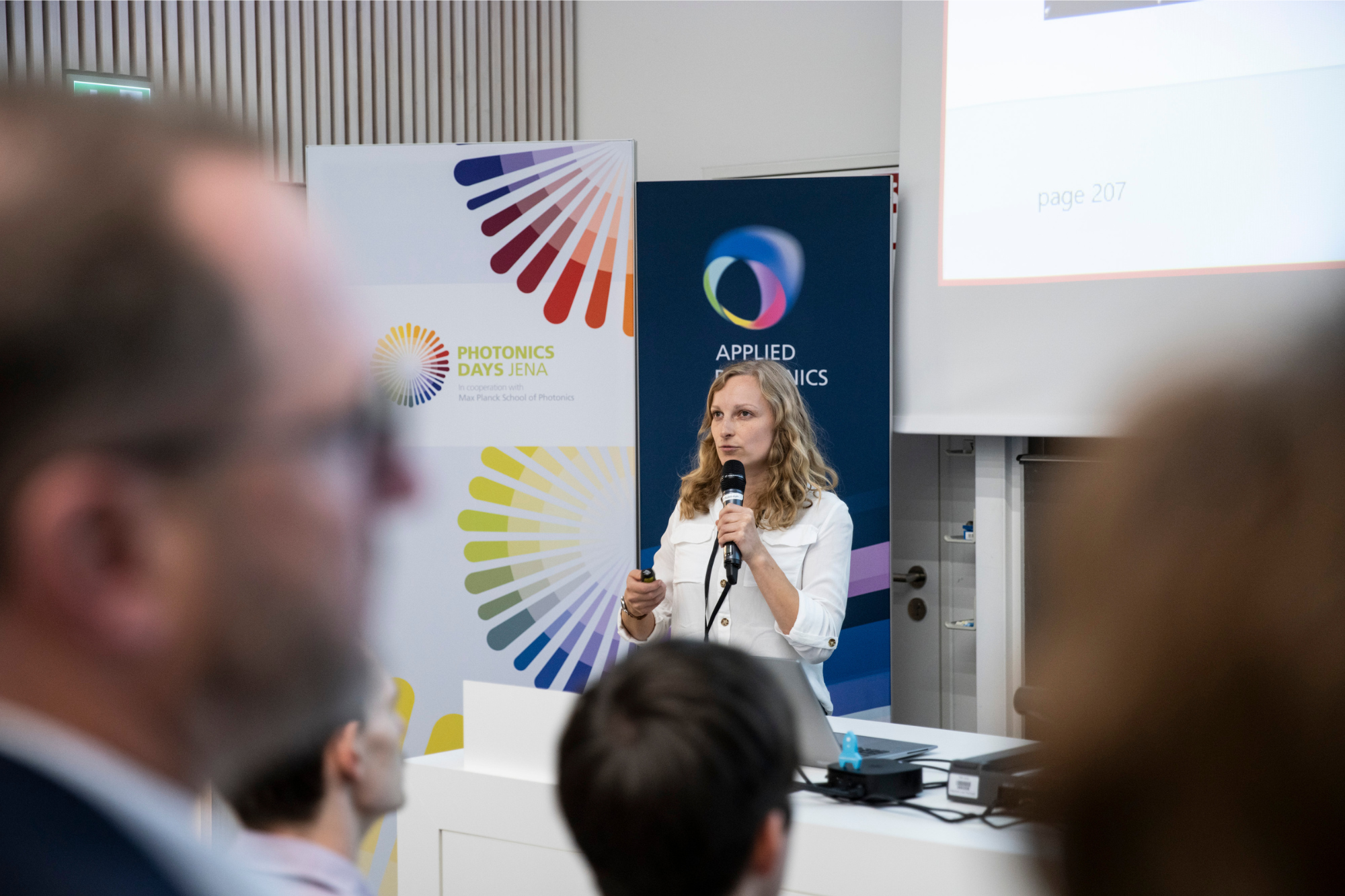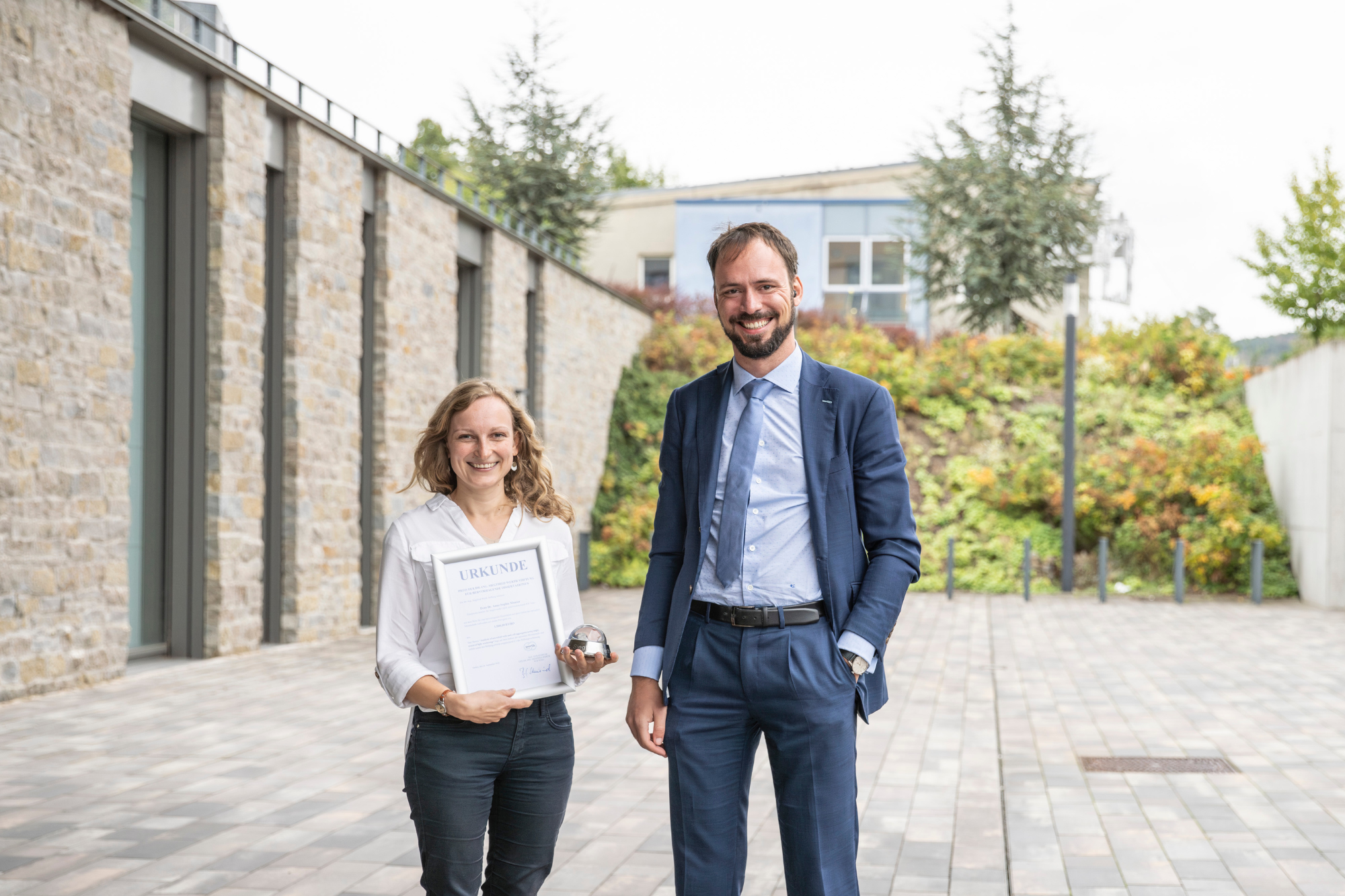Jena (Germany) / 07. Oktober 2024
Dr.-Ing. Siegfried Werth Prize for Anne-Sophie Munser
Fraunhofer researcher awarded for innovative bacteria detection method
For her dissertation on the subject of "Analysis of microbial cells and cell aggregates using angle resolved light scattering", Dr. Anne-Sophie Munser, researcher in the department of Functional Surfaces and Coatings at Fraunhofer IOF, was awarded with the Dr.-Ing. Siegfried Werth Prize. Her outstanding work in the field of highly sensitive scattered light analysis for the detection and analysis of bacteria opens up promising applications in infection research and food safety. The prize was awarded on September 26 as part of the Photonics Days Jena.

Fast and precise detection of bacteria and microorganisms is crucial in the diagnosis of diseases and in food and water monitoring. Until now, conventional methods have often needed several hours or even days to deliver reliable results. The method presented by Anne-Sophie Munser in her dissertation could drastically speed up this process in the future.
For her outstanding research results, Anne-Sophie has now been awarded with the Dr.-Ing. Siegfried Werth Prize. The award ceremony took place on September 26 as part of the Photonics Days Jena, the networking and career event of Fraunhofer IOF. Dr. Raoul Christoph, representing the Siegfried Werth Foundation, presented the award to Anne-Sophie Munser.
Innovative technology for the analysis of microbial cells

"In my dissertation, I investigated how light scattering measurement technology can be used to detect and analyze microbial cells, especially bacteria," explains the scientist. "Using various experimental setups, I was able to show that conclusions can be drawn about unknown cell samples from the scattered light patterns - for example about cell size, number or even cell type."
Scattered light occurs when light hits even the smallest irregularities, such as small particles. In combination with the structural properties of the illuminated object, this results in a characteristic light distribution that provides information about the nature of the cells. This fast and sensitive method enables the examination of bacteria without the need for complex sample preparation or the use of fluorescent dyes.
Even the smallest cell aggregates can be analyzed in detail this way. The method is therefore suitable for lab-on-a-chip technologies. In cell biology and biomedicine, for example for the detection of pathogenic germs, the speed of analysis is thereby significantly increased.
Antibiotic testing in less than three hours
The developed method is applicable in infection and pharmaceutical research as well as in food safety. "In a joint project with the Leibniz Institute for Natural Product Research and Infection Biology (HKI), we were able to show that the effect of antibiotics on various bacteria or developed antibiotic resistance can be detected in less than three hours - conventional methods often take several days," adds the researcher.
The developed method opens up new perspectives for medical diagnostics as well as quality control and food safety.

About the Dr.-Ing. Siegfried Werth Prize
The Faculty of Physics and Astronomy at the Friedrich Schiller University Jena and the Dr.-Ing. Siegfried Werth Foundation award the Dr.-Ing. Siegfried Werth Prize annually, to recognize particularly noteworthy doctoral theses in the field of optical metrology. The award is worth 1,500 euros.